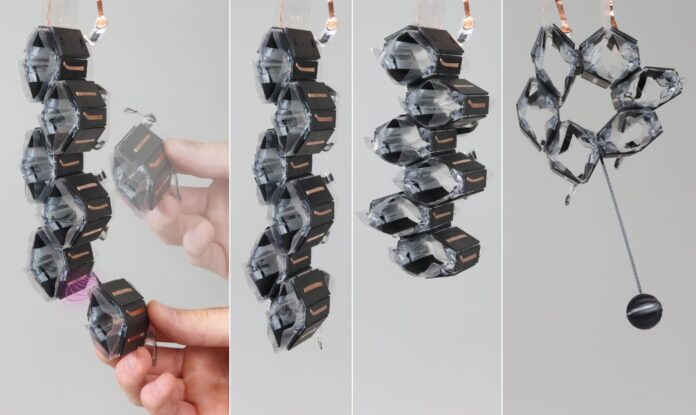Scientists at the Max Planck Institute for Intelligent Systems have engineered modular, hexagon-shaped components—dubbed HEXEL modules—that can be snapped together in a LEGO-like fashion to form versatile, fast-moving robots. These modules feature a blend of soft artificial muscles and a rigid exoskeleton, connected magnetically for rapid assembly and reconfiguration.
Each HEXEL module comprises six lightweight, glass fiber plates that form a sturdy outer shell. Inside, hydraulically amplified self-healing electrostatic (HASEL) artificial muscles power the joints. When a high voltage is applied, these muscles contract, shifting the hexagon’s shape from elongated to more flattened configurations.
The reconfigurable design allows the modules to form robots capable of diverse movements. Demonstrations have shown robots that can crawl through tight spaces, leap with remarkable speed, or roll rapidly, depending on how the modules are arranged. This innovative approach not only enhances adaptability but also offers a sustainable solution—by using the same set of components, various specialized robots can be created as needed, reducing the necessity to manufacture entirely new machines for each task.
According to the researchers, this strategy of combining soft and rigid elements provides high speed and significant range of motion, paving the way for robots that can be easily repurposed in response to changing requirements.





